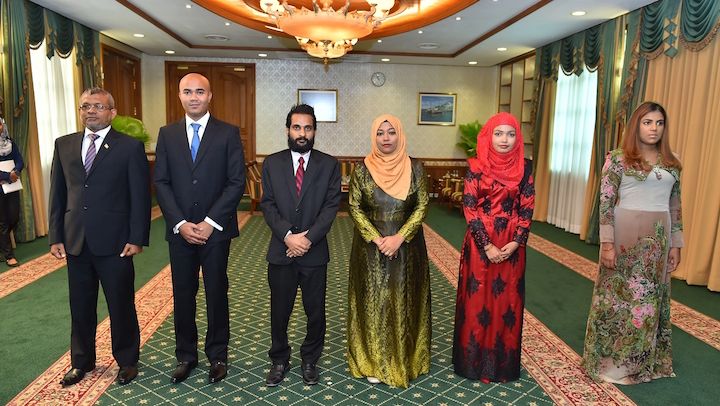Broadcasting regulator ‘concerned’ over charges against Raajje TV journalists
The Maldives Broadcasting Commission has expressed concern over charges filed against three journalists from the opposition-aligned Raajje TV, but stopped short of condemning the unprecedented criminal prosecution of journalists.

11 Apr 2016, 09:00
The Maldives Broadcasting Commission has expressed concern over charges filed against three journalists from the opposition-aligned Raajje TV, but stopped short of condemning the unprecedented criminal prosecution of journalists.
The MBC said in a statement today that it learned of the charges through media reports and expressed concern in its capacity “as the guardian of broadcasters.”
The media oversight body then urged broadcasters to abide by the broadcasting law, the code of practice, and broadcasting guidelines. The commission also appealed for all state institutions to ensure “the freedom of the press guaranteed by the constitution.”
Raajje TV journalists Mohamed Wisam and Leevan Ali Naseer are facing trial on charges of obstructing law enforcement officers during an anti-government protest on March 25 last year.
Become a member
Get full access to our archive and personalise your experience.
Already a member?
Discussion
No comments yet. Be the first to share your thoughts!
No comments yet. Be the first to join the conversation!
Join the Conversation
Sign in to share your thoughts under an alias and take part in the discussion. Independent journalism thrives on open, respectful debate — your voice matters.




